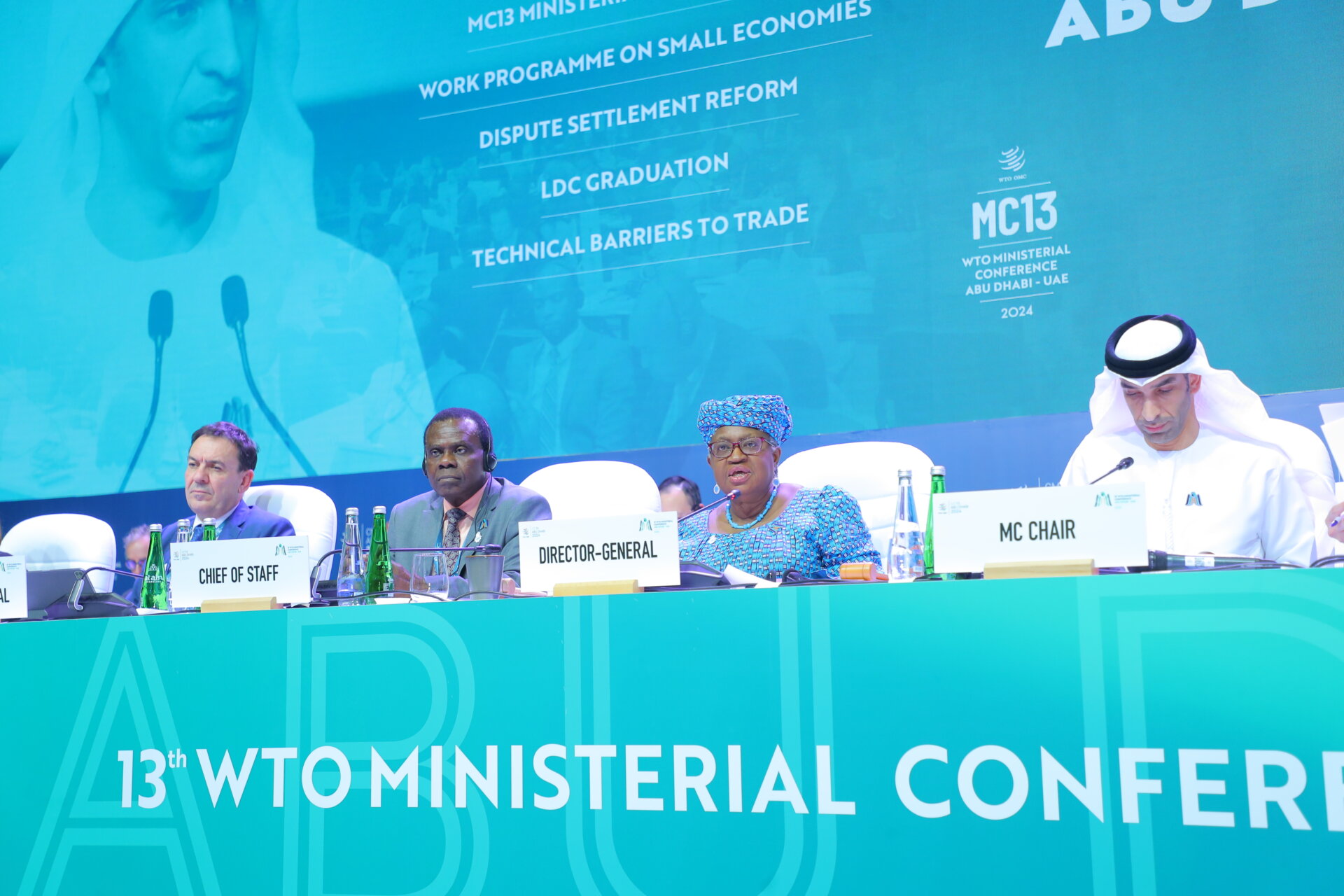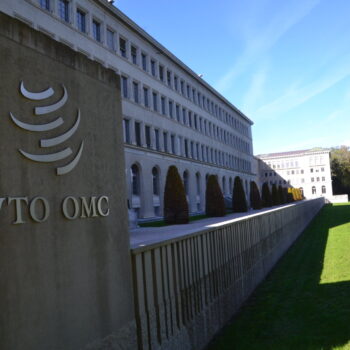The 13th Ministerial Conference (MC13) of the World Trade Organization (WTO) underscored the challenges of consensus-based multilateral negotiations, particularly in a global election year. Despite four days of intense deliberations, and an extension by one day, Members fell short of delivering on key agenda items. However, beneath the surface, there is an undercurrent of support for multilateral discussions on trade and climate that should not go unnoticed.
Going into MC13, expectations for substantive outcomes were low. Of the key agenda items – including e-commerce, a second fisheries agreement and food security outcomes – only a two-year extension of the e-commerce moratorium was achieved at the eleventh hour, leaving many Members and stakeholders dissatisfied with the multilateral process.
The exception was India, who adopted an obstructionist approach, blocking outcomes across the board, sometimes against a consensus of all 165 other members. This included preventing the incorporation of “non-trade issues” like climate into WTO discussions and blocking plurilateral initiatives like the Investment Facilitation Agreement from being adopted into the WTO legal framework.
When it comes to climate and trade, the multilateral outcome statement included no mention of climate considerations and further lacked a dedicated paragraph addressing the intersection of trade and the environment. This marks a step backwards from MC12, where climate change and other global environmental challenges were explicitly acknowledged.
Other anticipated outcomes, like a reinvigoration of the Committee on Trade and Environment (CTE), or the launch of a deliberative process on industrial policy, also failed to materialise. One positive multilateral outcome was the Ministerial Declaration on Strengthening Regulatory Cooperation to Reduce Technical Barriers to Trade, which included language highlighting the importance of addressing climate change.
Despite the meagre multilateral outcomes, the Ministerial Conference was not entirely bleak. Threads of positivity on a plurilateral level highlight the majority support that exists for trade and climate discussions in this sphere.
1. Progress among the willing
Three plurilateral initiatives – the Plastics Pollution Dialogue with 78 WTO members; the Trade and Environmental Sustainability Structured Discussions (TESSD) with 76 members; and the Fossil Fuel Subsidies Reform (FFSR) with 48 members – presented the progress they have made and set ambitious work programs to achieve outcomes by the next Ministerial Conference (MC14).
Importantly, the Coalition of Trade Ministers on Climate, a non-WTO initiative, held their second-ever Ministerial meeting. The result was a communiqué, calling for “ambitious, concrete and forward-looking commitments” on climate. The Coalition also published a menu of voluntary trade-related actions to address the climate crisis.
These plurilateral initiatives now become more important than ever and should be seen as a necessary condition of progress rather than an impediment to multilateralism.
2. Global south support
While there are certainly divides on green trade issues, it became clear that the discussion of climate at the WTO is not a global south versus north issue. A large group of 72 developing countries – including South Africa and Brazil, but not India or China – supported a Ministerial Declaration on the Contribution of the Multilateral Trading System to Tackle Environmental Challenges. This declaration included strong language denouncing unilateral measures, but also emphasised the desire to promote work and dialogue on trade and environment at the WTO.
This more balanced statement marked a departure from COP28, when the BASIC group brought the issue of unilateral measures into the Global Stocktake negotiations. Unlike at COP28, the language around unilateral measures did not provoke as much attention at MC13. Lessons can be learned here, both in terms of the positives of the broader trade and climate agenda as a more constructive area of focus rather than solely on unilateral measures, but also the potential of the WTO and the trade sphere as a complementary venue on these issues.
3. Civil society champions
NGO access to the Ministerial was severely limited, with accredited NGOs barred from attending plenaries or getting anywhere close to the negotiations. In contrast, the Trade and Sustainability Hub hosted by the International Institute for Sustainable Development emerged as a beacon of ambition and productive discussion. E3G hosted two events at the hub, bringing together stakeholders and the Coalition of Trade Ministers on Climate to discuss trade and climate ambition away from the doom and gloom at the main event.
What next?
Despite the lack of outcomes on crucial issues at MC13, it is essential to recognise the incremental progress and emerging consensus on the importance of integrating climate and environmental considerations into trade policy. The negotiations will continue and plurilateral initiatives offer a pathway forward. WTO members must build on these developments, deepen cooperation, and double down on reforming the multilateral trading system to foster sustainable development to deliver tangible outcomes by the next Ministerial Conference.


